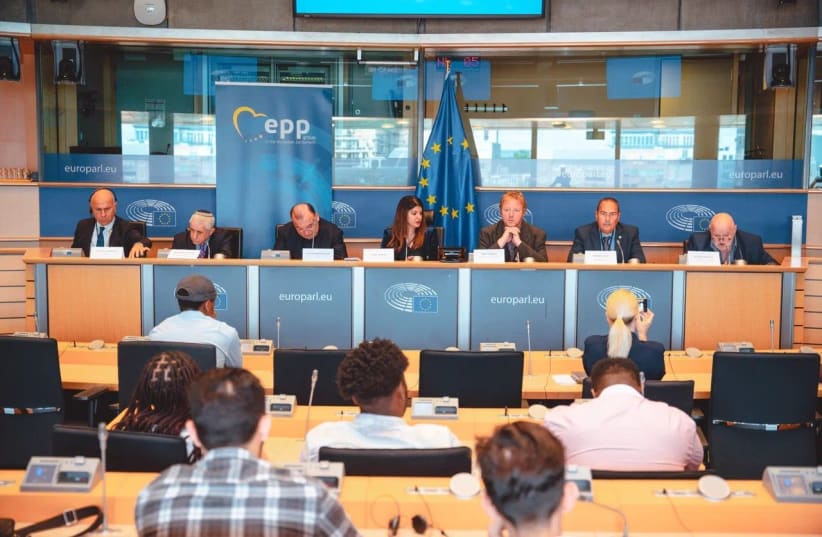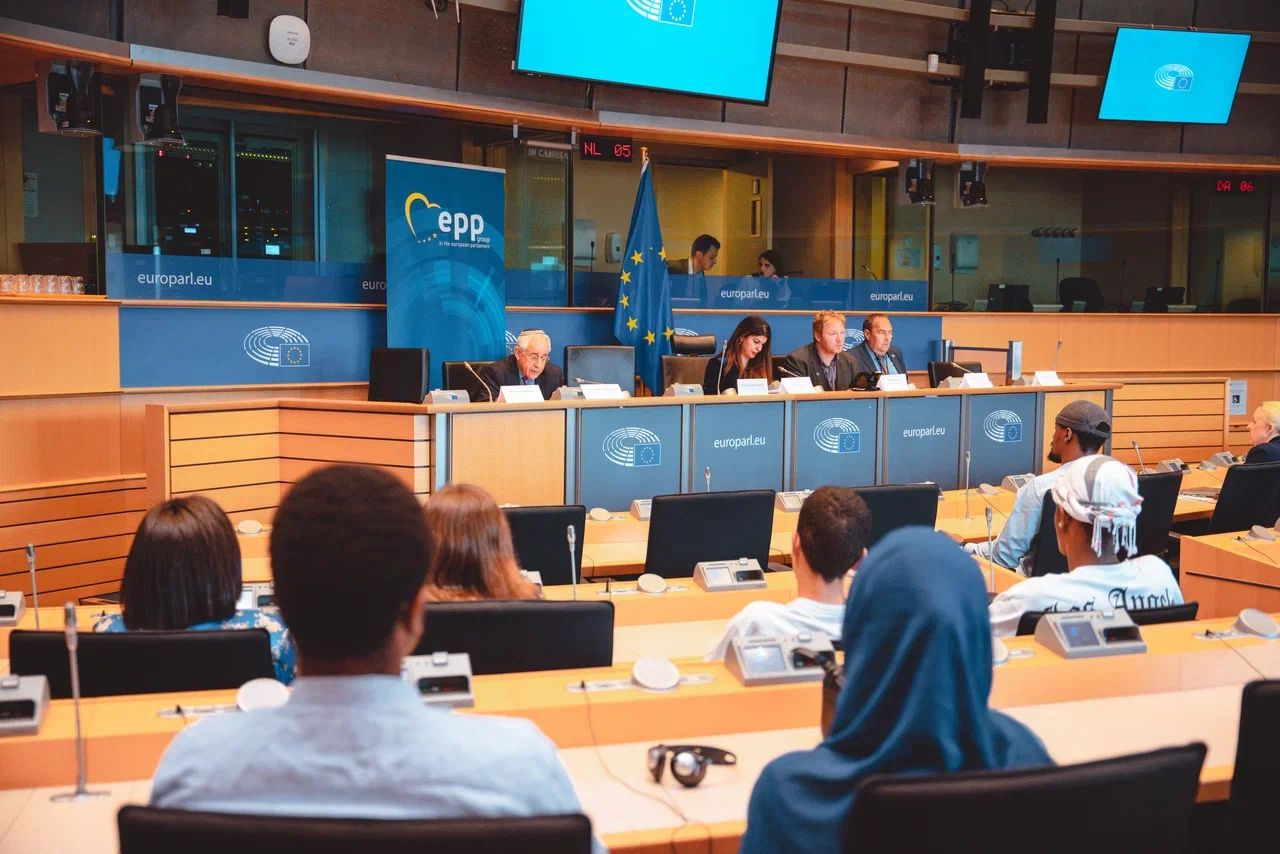International conference at European Parliament focuses on Iran’s conduct towards minority groups. “The Jews were persecuted for many years and we know well how it feels. We, specifically, are obligated more than anyone towards the Azeri minority that suffers from ongoing oppression” - Rabbi Zamir Isayev, Baku.
The Jewish community in Azerbaijan has expressed deep satisfaction with the dialogue that took place at an international conference at the European Parliament, which focused on Iran’s conduct towards its minority groups, primarily the Azerbaijani community, which constitutes almost one third of the country’s population.
Six members of the European parliament and five senior speakers, as well as representatives of human rights organizations, and analysts and experts on Iran from France, Belgium and Israel took part in the event, organized by the EPP Group and activists of the Azerbaijani TG channel AZFRONT from Tabriz.
The conference was moderated by Manel Msalmi, international affairs advisor at parliament, and expert on Iran, who launched the conference with a lecture on minority groups in Iran and the struggle of the Azerbaijanis, Ahwazi Arabs, Kurds, Baluchis, and others for equal rights that has spanned several decades.
Msalmi also elaborated on the need to raise the matter at the European and international levels, particularly following the death of Mahsa Amini ten months ago, which led demonstrations throughout the world in support of women and youth in Iran.
Commenting the event, Rabbi Zamir Isayev, head of the Georgian Sephardic community in Baku stated, “The Jews were persecuted for many years, and we know well how it feels. We, specifically, are obligated more than anyone towards the Azeri nation that suffers from ongoing oppression.” Rabbi Isayev added that they plan to “raise the matter at every international forum” since “Iran’s oppression of the Azerbaijani minority has to be at the top of the world public agenda.”
The keynote address was delivered by Member of Parliament Francesca Donato, in which she emphasized the role played by the European Union in support of democracy, equality, and ethnic freedom in Iran and the Middle East to ensure rights for women and minority groups in Iran.
A short documentary on the oppression of the Azerbaijanis in Iran was screened at the conference, together with the recorded appeal of the editor of the AZFRONT channel, who shared witness accounts of language and cultural discrimination experienced by Azerbaijanis in Tabriz and other cities of Northern Iran. She told how the government prohibits the use of Azerbaijani names for children, literally cutting the youth from their ethnic roots, how the state TV and other media, including children’s programming, humiliates Azerbaijanis and devaluates their cultural background and practices.
Thereafter, renowned Israeli orientalist, Dr Mordechai Kedar, took the stage and described the horrors of the regime in relation to women and minorities, suffered by Azeris, Arabs, Kurds, and Baluchis for decades.
Other speakers included Thierry Vallet, president of Cap Liberté de Conscience; Claude Monique, journalist and former French intelligence officer, and CEO of the European Strategic Intelligence and Security Center (ESISC); Andy Vermaut, president of Post Versa; and European parliament members, Salvatore de Meo, Matteo Adinolfi, Lucia Vuolo, and Gianna Gancia.
Topics covered were religious freedom in Iran, especially the discrimination and persecution suffered by religious minorities.
Also, attention was given to the oppression of women and minorities as a distinctive characteristic of the Iranian regime, which utilizes the hostage policy and is categorized as a terrorist regime.
It was stressed that the European Union assigns importance to minority groups and the international community’s obligation to support Iranians, including non-Persian populations, such as the Azerbaijanis, to facilitate their freedom and equality: “The EU must be prepared to help everyone, no matter their religious or cultural affiliation. Minority groups in Iran should have the right to learn their own language and celebrate their cultural heritage as they wish.”
This article was written in cooperation with Shuva Israel

